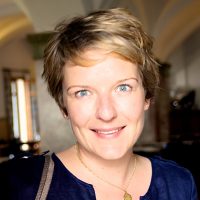Why the EU needs a Special Representative to Respond to the Arab Spring
The European Union and its member states continue to struggle to find a response to the Arab Spring, write former DAAD/AICGS Fellow Almut Möller and Cornelius Adebahr. Past policy approaches had little impact on the area’s regimes, if anything doing more to support them than reform them. In this report for the German Council on Foreign Relations (DGAP), the authors argue that the EU should reorient its policies and utilize one of its established and successful foreign policy instruments and name an EU Special Representative for North Africa.
The Future of Germany’s Foreign Policy in the Middle East
Whatever the outcome of the September elections, Germany’s foreign policy agenda in the Middle East will remain by and large stable writes AICGS Non-resident Fellow Almut Möller. In her essay “The Future of Germany’s Foreign Policy in the Middle East: European, Transatlantic, and Eventually More German?” Möller argues that Germany will continue to cooperate with the European Union in its Middle East policies and will seek a strong link with the Obama administration in Washington in the face of such challenges as the war in Iraq, the Iranian nuclear program, the fragmentation of the Palestinian territories, and the Israeli invasion in Gaza.
We Believe in Change: Europe, the Middle East, and the Future of Transatlantic Cooperation
The remarkably dense media coverage in Europe on the pre-election campaign in the United States is a tell tale sign: America is voting and Europeans are fascinated. Ask any average European these days and you will be surprised to hear him commenting on details of Ohio’s electoral system or the role of the superdelegates, and he will most likely have watched Barack Obama’s speech on Pastor Jeremiah Wright and Hillary Clinton’s tale of sniper fire in Tuzla on YouTube. But the real interest lies in the outcome…




